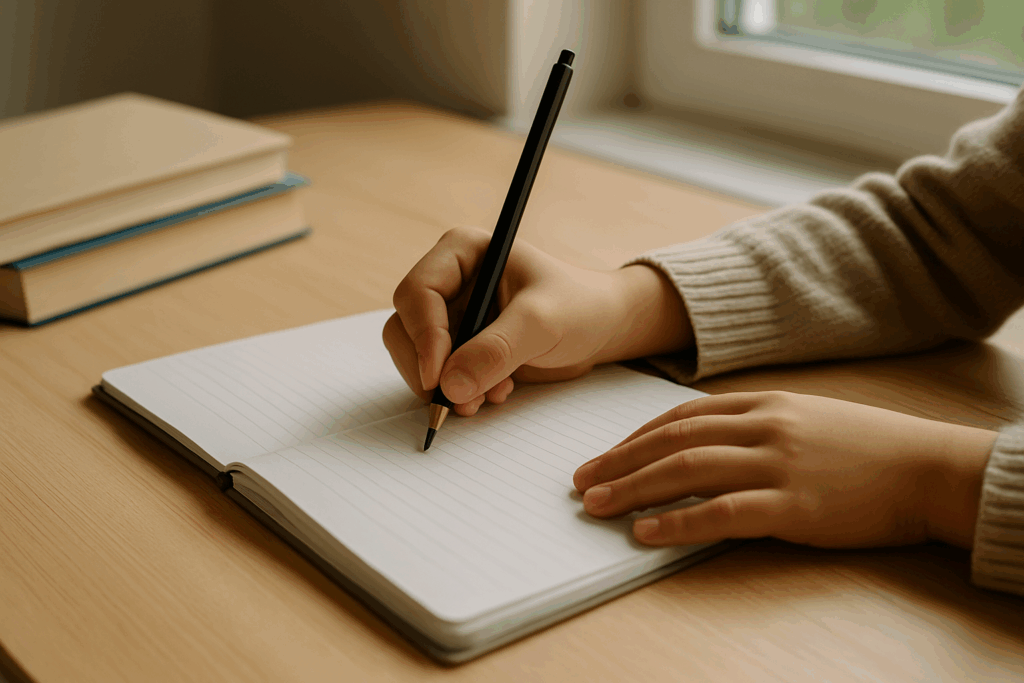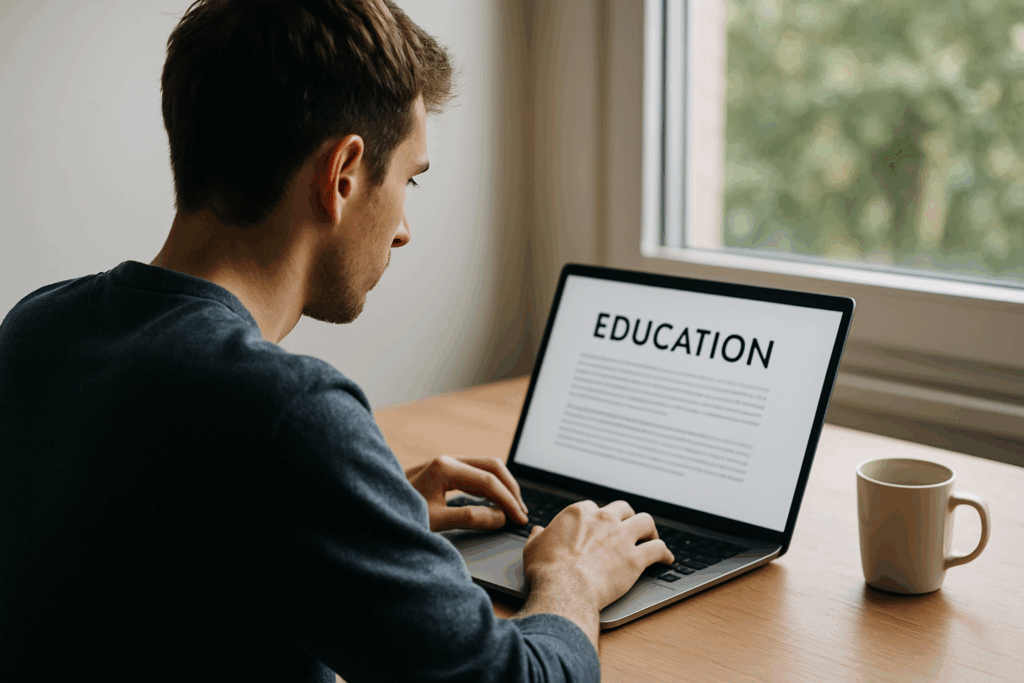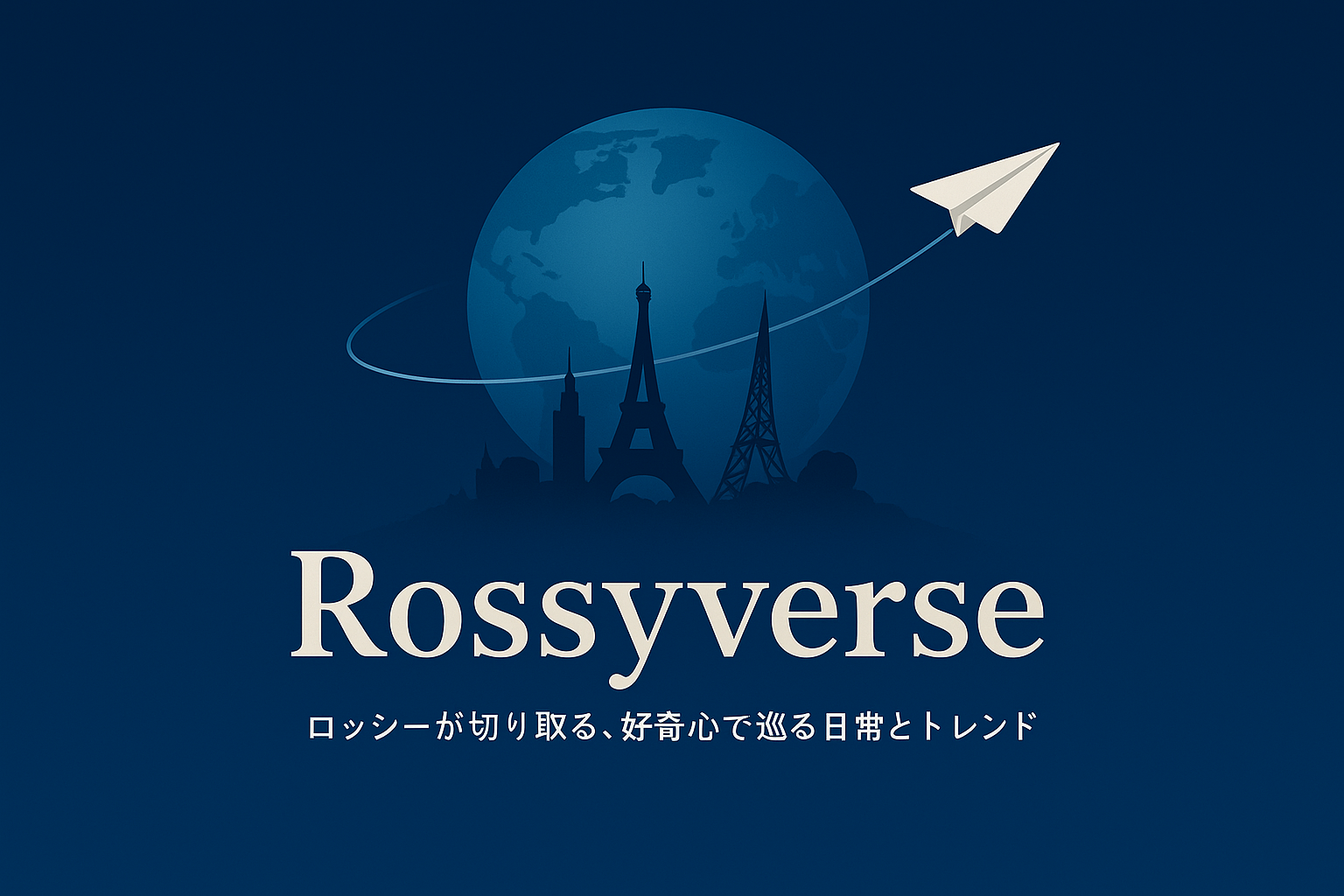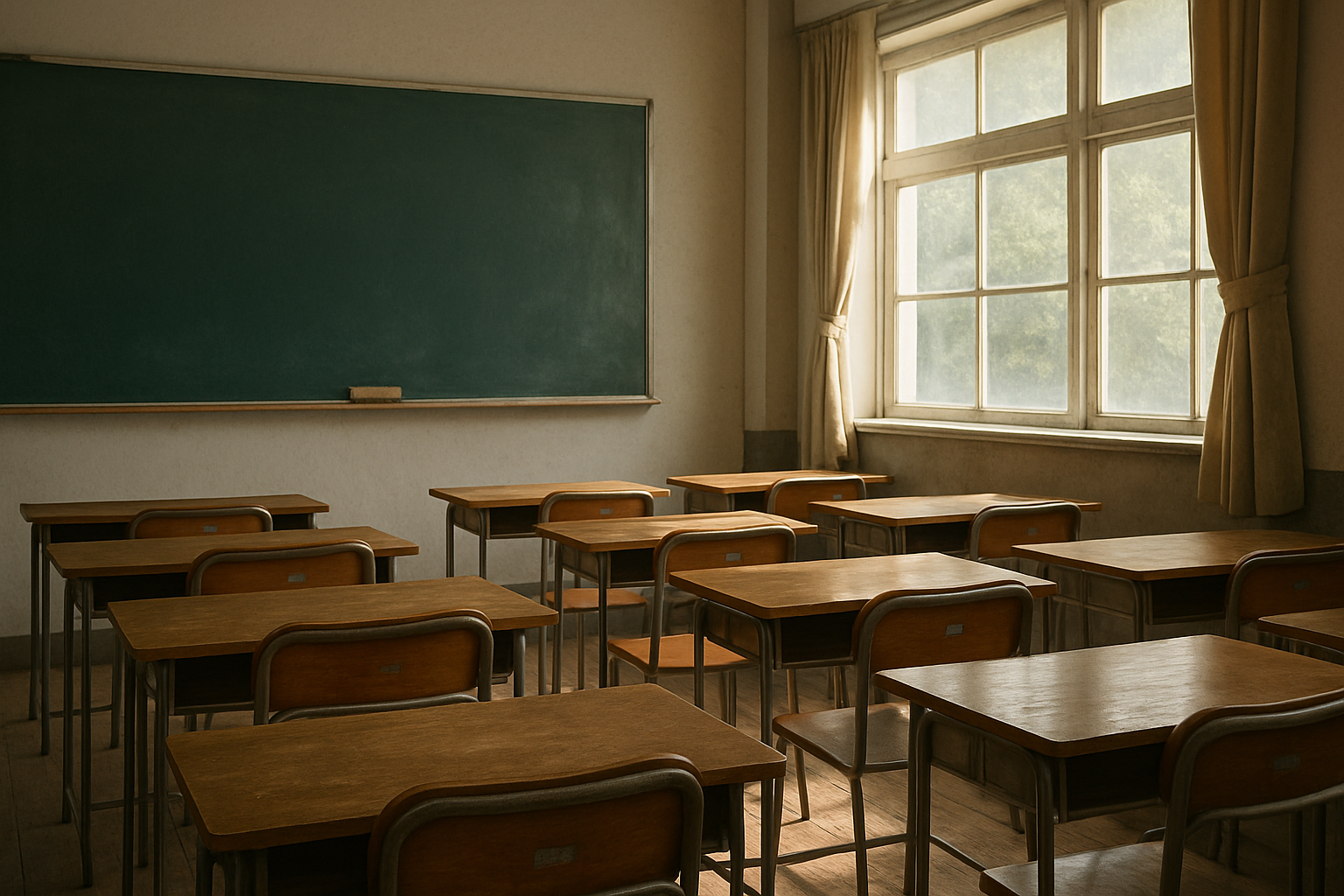僕はよく考えるんです。教育って本来、誰のためにあるんだろうって。
大人のため? 政治のため? それとも子どもたちの未来のため?
やっぱり最後に残る答えは「子どもたちのため」であってほしいと僕は思います。
けれど現実を見ると、教育は時に政治や思想の影響を強く受けてしまいます。
ある国では、自国を誇りに思わせるために歴史を都合よく語ることがある。
また別の国では、外の国を敵のように描いてしまうことがある。
それは大人の思惑に過ぎないのに、刷り込まれるのは子どもたちです。
子どもの頃に受ける教育は、時に「学び」というより「刷り込み」に近い形になってしまうこともあるのです。
教育はとても大切です。
だからこそ、政治や思想から少し距離をとり、できるだけ中立的に運営されるべきではないかと思います。
なぜなら子どもの頃に受けた教育は、事実であるか否かは別に、そのまま刷り込まれて事実になってしまうからです。
それを行っているのは大きな誤りであり、それは教育ではなく「洗脳」だからです。

Small hands give shape to future learning.
僕は以前から「教育省」というものがあってもいいのでは、と考えてきました。
そして、それは司法府、立法府、行政府の三権分立ではなくて、「教育権」という教育府の下に存在するものとして。
政府からは一定の距離を置き、第三者的で中立な立場から教育を整えていく機関です。
そうすれば、右や左に傾きすぎることなく、子どもたちがよりフラットに学べる環境を整えられるのではないかと。
もちろん、教育に「完全な中立」は存在しないかもしれません。
教える人にも価値観はあるし、その国の文化や歴史が自然に反映されるのは避けられません。
でも、それでも「できるだけ偏らないようにする努力」を積み重ねることはできるはずです。
その努力があるかどうかで、子どもたちが得る世界の見え方は大きく変わります。
例えば、ある国では自国の歴史を誇り高く教えます。
それは決して悪いことではないけれど、もしその裏で他国を敵視するように教えてしまったらどうでしょう。
子どもたちは世界を「味方」と「敵」に分けてしか見られなくなってしまいます。
教育は、そうした対立をつくるためにあるのではなく、互いに理解し、尊重し合うためにあるはずです。
教育の力はとても大きいです。
それは国の将来を左右し、社会の空気を形づくります。
だからこそ、大人は責任を持って「何を教えるか」「どう教えるか」を考えなくてはなりません。
一方で、教育は大人のものではなく、あくまで子どもたちのもの。
その原点を見失わないことが、一番大切なのではないでしょうか。
教育は、未来をつくる力を持っています。
子どもたちが、他者を敵としてではなく、共に生きる存在として学べるかどうか。
自国を誇ることと、他国を尊重することを同時に理解できるかどうか。
そこに教育の本当の価値があると僕は信じています。

僕はブログにこうして自分の考えを書きながら、自分自身も学んでいます。
「教育をどう考えるべきか」というのは、国や政府だけの問題ではなく、僕たち一人ひとりに関わるテーマだからです。
親であれ、先生であれ、市民であれ、誰もが教育に何らかの形で関わっています。
だからこそ、他人事ではなく、自分自身の問題として向き合う必要があると感じます。
教育は社会の空気をつくるだけでなく、国と国との関係にも影響を及ぼします。
隣国との摩擦の多くは、突き詰めれば教育の在り方と無関係ではないと感じます。
もし子どもたちが幼いころから「相手国は敵だ」と教えられれば、その感覚は大人になっても根強く残ってしまうでしょう。
国旗を踏みつけたり、燃やしたりするような行為は、その教育の結果にほかなりません。
逆に、互いを尊重する学びを続ければ、未来はもっと違った形になっていくはずです。
教育の中には、希望もあります。
偏見を植え付けることもできてしまう一方で、偏見をなくす力もある。
対立を生むこともあれば、平和を築くこともできる。
だからこそ教育は、人類にとって最大の「未来への投資」なのだと思います。
もう一つ付け加えるなら、教育は学校だけのものではありません。家族や地域、職場やオンラインのコミュニティで交わされる言葉や態度も、子どもたちの“教材”になります。大人が間違いを認め、考えを更新し、知らないことを学び直す姿を見せること――それ自体が最高の授業です。「正解を一つに決めない」「相手の背景を想像する」「事実を確かめる」という小さな所作を、日常の会話に宿らせていきたい。そうした習慣が、教室の外側からも未来を支えてくれるはずです。
僕は理想論を語っているのかもしれません。
でも、その理想を語ること自体が大切なのだと思っています。
理想を口にしなければ、現実は一歩も動かない。
だから僕はこれからも、自分なりに教育について考え続け、発信していきたいと思います。
教育は、未来を担う子どもたちのものです。
その未来が少しでも開かれたものになるように、大人は責任をもって環境を整える必要がある。
そして僕たち一人ひとりの意識の持ち方もまた、その未来を左右するのです。
🔗 あわせて読みたい記事
・小さな命を守るために ― SDGsと子どもの健康格差
子どもの健康格差や医療の不平等に焦点をあてた記事。
・豊かな国の、見えない貧困 ― SDGsと僕たちができること
国内に潜む貧困の現実と、僕たちにできることを考える記事。
Who Owns Education? — Thinking About Children’s Future and Neutrality
I often think about this: who, in the end, is education really for?
For adults? For politics? Or for the children’s future?
In the end, I want to believe the answer is “for the children,” and that is how I feel.
But when I look at reality, education can sometimes be strongly influenced by politics and ideology.
In some countries, history is presented in a way that makes people proud of their own nation.
In other countries, foreign nations are depicted as enemies.
Those are merely adult agendas, yet it is children who end up having these things drilled into them.
The education children receive can sometimes become closer to “conditioning” than to true learning.
Education is extremely important.
That is precisely why I think it should be run with some distance from politics and ideology, and as neutrally as possible.
Because what children are taught in their formative years tends to be accepted as “fact,” regardless of whether it is actually true.
Carrying out instruction in that way is a grave mistake — it is not education but rather “brainwashing.”

I have long thought that an institution like an “Education Agency” might be a good idea.
But I imagine it not as part of the judiciary, legislature, and executive separation of powers, but as a body under an “education authority.”
An organization that keeps a certain distance from government, and that shapes education from a third-party, neutral standpoint.
If such a structure existed, perhaps we could create environments where children learn more evenly, without leaning too far to the right or the left.
Of course, “complete neutrality” in education may be impossible.
Teachers have their own values, and a nation’s culture and history will naturally be reflected.
Still, I believe we can make continuous efforts to avoid excessive bias.
Whether those efforts are made will change how children perceive the world.
For example, one country may teach its own history with pride.
That in itself is not necessarily wrong, but what if, at the same time, it teaches its citizens to view other countries as enemies?
Children would come to see the world only in terms of “friends” and “foes.”
Education should not serve to create such divisions; it should foster mutual understanding and respect.
The power of education is enormous.
It shapes a nation’s future and forms the atmosphere of society.
Therefore, adults must take responsibility for what is taught and how it is taught.
At the same time, education is not for adults — it belongs to the children.
Keeping that principle at the core is, I believe, most important.
Education has the power to create the future.
Whether children learn to see others as enemies or as fellow human beings to live alongside — whether they can both be proud of their own country and at the same time respect other countries — that is where the true value of education lies.

I may be speaking in ideals.
But I think speaking those ideals matters.
If we never name the ideals, reality will not shift at all.
So I will continue to think and to speak about education in my own way.
Education is for the children who will take on the future.
Adults must take responsibility and arrange environments so that that future is more open.
And the way each of us thinks will also shape that future.
Education also affects relations between countries.
Many of the frictions between neighboring countries, I feel, can be traced back to how education is structured.
If children are taught from a young age that another country is an enemy, that perception will persist into adulthood.
Actions such as trampling or burning another country’s flag are the result of such education.
Conversely, if respectful learning of one another continues, the future could take a very different form.
There is hope in education.
While it can implant prejudice, it also has the power to eliminate prejudice.
It can create conflict, and it can also build peace.
For that reason, I think education is humanity’s greatest “investment in the future.”
I may be talking in ideals again.
But the act of voicing those ideals is important.
Without speaking them, nothing will move.
Therefore, I will continue to think about education and to voice my thoughts.
Education is the possession of the children who will inherit the future.
Adults must take responsibility to prepare the environment so that that future is open.
And the attitudes of each one of us will influence that future.
One more thing I want to add is that education is not limited to schools. The words and attitudes exchanged in families, communities, workplaces, and online groups also become the children’s “materials.” When adults admit mistakes, update their thinking, and show the act of re-learning, that itself becomes the best lesson. I want everyday interactions to host small practices — “don’t settle on one answer,” “imagine the other’s background,” “verify the facts” — so that those habits strengthen the classroom from the outside as well.
Finally, I believe there is also a need for “education that teaches how to question education.” This is not meant to deny the existing systems. Rather, it is about cultivating a habit of checking information and rules with one’s own mind, fixing errors when found, and filling in gaps where needed. That attitude makes education a bridge to the future, not a tool. Adults must hand over that bridge as safely and openly as possible. I will keep thinking and leaving words behind for that purpose.
🔗 Related Articles
・Protecting Tiny Lives — SDGs and the Health Gap Among Children
An article focusing on health disparities and unequal access to care for children.
・Invisible Poverty in a Wealthy Nation — What We Can Do
A reflection on hidden poverty in Japan and what individuals can do to respond.




コメント